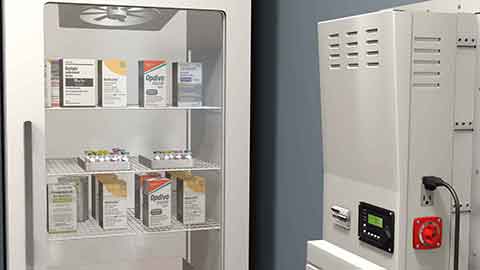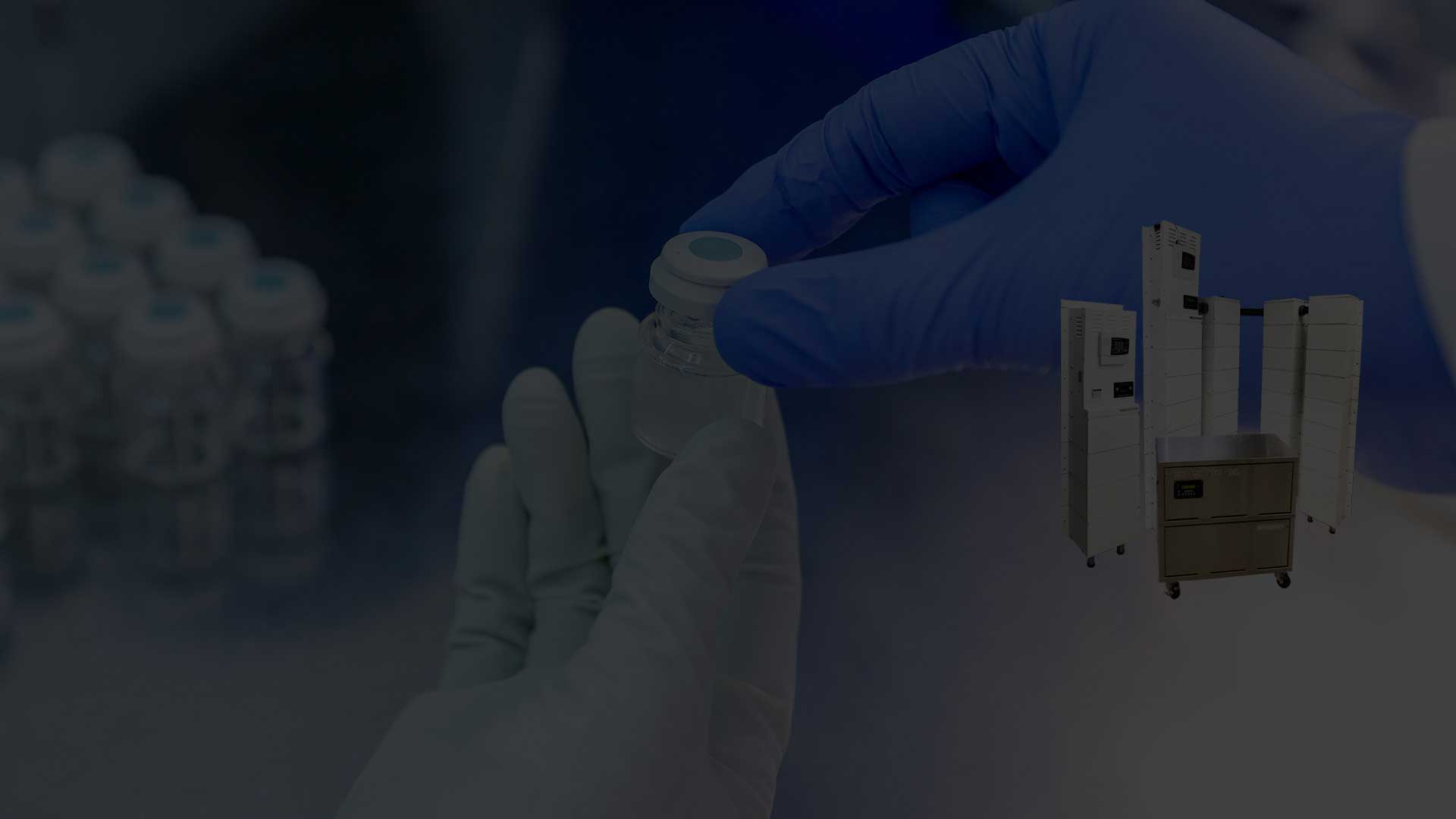Healthcare Resilience: Battery Backup Systems vs Generators
In case you missed it, catch up on the previous entries in our series detailing the design and operation of Healthcare facilities and why backup power is crucial for modern and fully-optimized operations.
In the world of healthcare architecture and electrical engineering, building resilient healthcare facilities is crucial for peace of mind. Robust and flexible plans ensure uninterrupted care, and protect future operations.
To save lives, hospitals must work perfectly by using advanced medical equipment. By the same token, valuable materials like medicine and research samples need safeguarding. In a such a tough situation, having stable and accessible power is what matters most.
Let Us Assist You With Your Backup Power Needs!
So, when faced with the choice between battery or gas generators, designers and engineers must weigh many factors.
We'll delves into the intricacies of designing healthcare settings for maximum resilience. Plus, We'll explore the benefits and considerations of both battery backup systems and generators.
The Importance of Backup Power in Healthcare Facilities
In the realm of healthcare, where lives are on the line, continuous and reliable power supply is paramount. Hospitals and medical facilities rely on an array of life-critical equipment, including:
- Life support systems,
- Imaging devices,
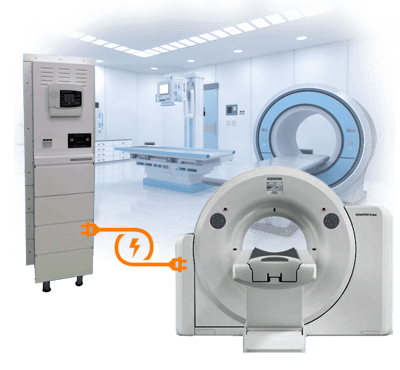
- and Diagnostic tools
All which need uninterrupted power to ensure seamless patient care. During power outages or brown outs, equipment can stop functioning. This ends up compromising patient safety and well-being.
Not to mention, the preservation of biomedical inventory, like vaccines, blood/platelets, and research samples, is important.
These sensitive materials demand precise environmental conditions. Thus, power outages could lead to spoilage or degradation due to temperature excursions. This will make them unusable. It puts patient health and medical progress at risk and reduces the supply.
Battery Backup vs. Generators
In the quest for resilience, battery backup systems and generators stand as two popular, yet very different options. Each solution has its unique strengths and considerations. Ultimately, the choice depends on factors and your facility's use case. Let's explore the considerations of both options:
Battery Backup Power Systems
Battery backup systems (also called an uninterruptible power supply or UPS) are known for their instant and automatic power delivery. When the main supply fails, they can begin powering your appliances fast enough that they do not need to reboot.
Though contrary to popular belief, they're not just first line of defense. New battery systems can provide enough power on their own, even without generator backup. With modern set-ups and denser reliable batteries, medical appliances can be powered for days.
Battery backup power sources are particularly well-suited for areas with frequent short-duration outages and urban medical care environments.
Pros:
- Engage in milliseconds during power outages
- Compact and scalable designs for facilities with limited space
- Suitable for supporting sensitive medical equipment with pure sine-wave needs
-Offer surge protection and brown out protection
Cons:
- Batteries may not scale infinitely
-Up-front cost may be higher than a gas generator
Fuel-Powered Inverter Generators
Fuel Generators, on the other hand, are known for their extended runtime capabilities. Because they run on fossil-fuels, they can theoretically run for as long as they're provided with gas.
Traditional thinking says this makes them ideal for care facilities expecting regular prolonged power outages . In addition Fuel generators have historically been seen as more appealing because they are cheaper upfront.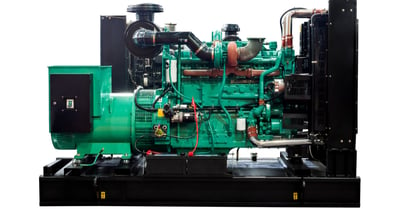
However, these benefits do come with significant drawbacks. These range from expensive and extensive permitting (especially for urban and suburban faculties), expensive installation costs and fuel storage costs.
Besides, the power they provide may not be available immediately. Even though better generators have improved, most still take 15 minutes to give steady power.
Pros:
- Extended runtime to support facilities during prolonged power outages
- Capable of supplying power to an entire facility or critical departments
- Suitable for large-scale healthcare facilities with higher power demands
Cons:
- Longer response time compared to battery backup systems
- Need larger physical space and expensive, fixed installations
- Noise, Emissions and environmental impact due to fuel consumption
Tailoring Resilience Solutions for Optimal Performance
When it comes to enhancing resilience in healthcare settings, there is no one-size-fits-all solution. Customization is key to designing an efficient and reliable power supply system. Here are some considerations to guide healthcare professionals in making the best choice:
Load Analysis:
Conduct a comprehensive load analysis. This will help confirm the power requirements of critical medical equipment.
Collaborate closely with medical staff and equipment manufacturers to gather accurate data. Accurate data could result in needing less power than you initially thought. This could save you money and allow budget flexibility in the future.
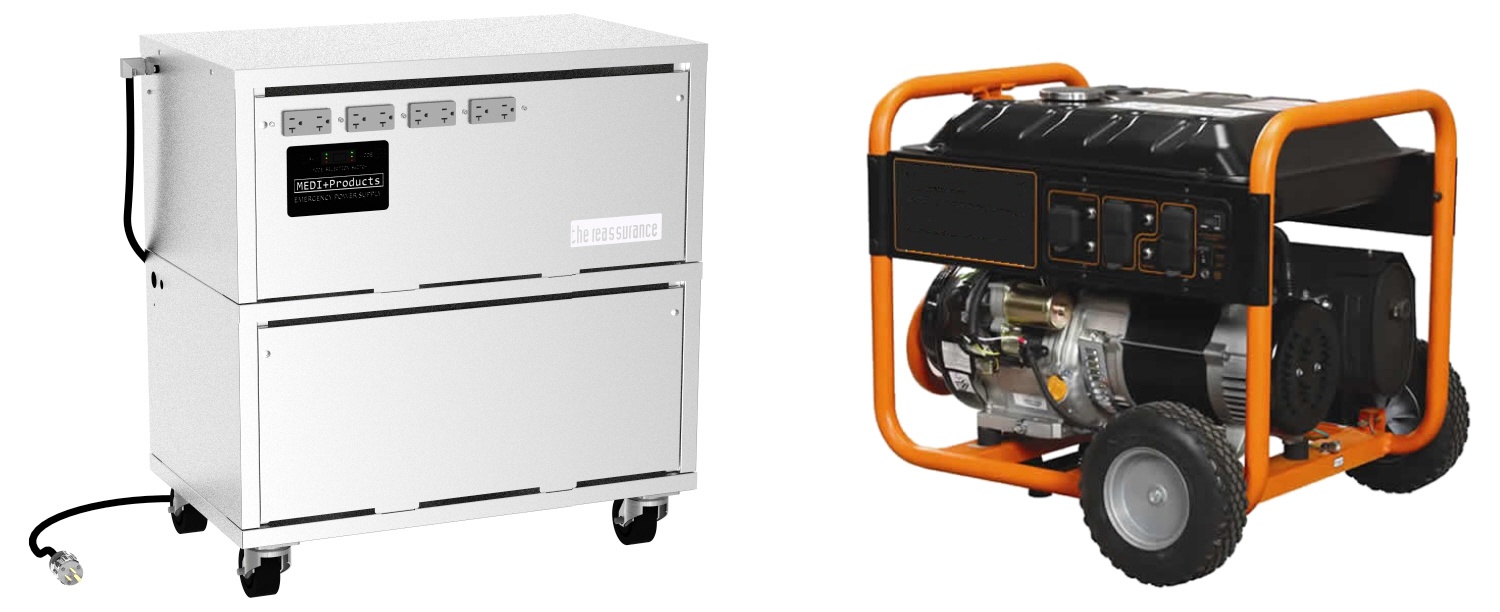
Redundancy:
In healthcare settings, redundancy is essential to avoid single points of failure. Implementing parallel UPS units or N+1 configurations for generators ensures continuous power supply, even in the event of a component failure.
Scalability for Future Growth:
Healthcare facilities are subject to expansion and advancements. Opt for solutions that are easily scalable and can accommodate future growth in power demands.
Environmental Impact and Noise:
Consider the environmental impact and noise levels of the chosen solution. Battery backup systems generally have a lower environmental footprint. They produce no noise or emissions during operation.
Conclusion
In the high-stakes world of healthcare, resilience through backup power is non-negotiable.
Once the power goes out, the clock starts.
Battery backup systems offer instant and automatic power for both medical equipment and laboratory appliances alike. No staff needs to be on-site to monitor or start the generator. Valuable samples and inventory will stay safe without any extra effort.
Their shape is vertical like a cabinet, and their batteries don't leak. This means they can fit into small spaces and be positioned in any way. Meaning now matter how crowded your vaccine or sample room is, you can ensure you'll be protected.
Plus, if your lab or storage room is truly tight on space, a hardwired backup power unit can instantly supply remote power to your appliance. It does so via the outlet its already plugged into.
No matter what system you choose, it will protect your biomedical and chemical samples from power loss. It guarantees a smooth switch from utility power to backup power, avoiding temperature excursions.
And for Facilities who perform outpatient operations, battery power instantly engages, keeping your operations going with zero downtime due to their advanced battery technology.
Even better, is that battery generators can be outfitted with as much power as you want. So system’s can be designed with enough power to protect a facility’s inventory:
- Overnight
- All day
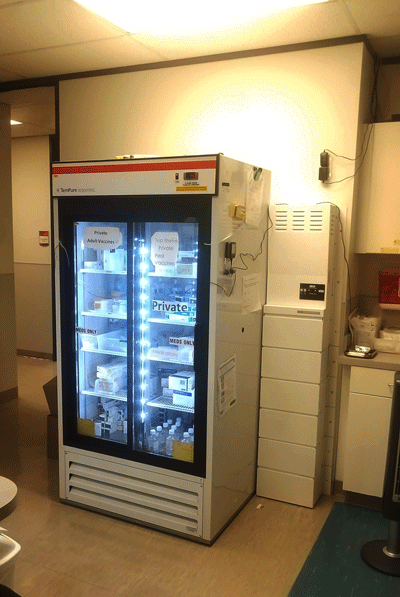
- Over a weekend
- Or even for a whole week.
So, to protect your facility from tens of thousands of dollars in lost inventory speak to a Medi-Products battery backup expert.
They’ll help design you a system that both meets your power needs and will fit inside your facility—for a much lower cost than what your vaccines are worth. So a backup power system pays for itself the first time your power goes out.
Designing a system for you is as easy as taking a picture of your appliance’s nameplate, and a photo of the room where it’s in.
Then, you just email both photos to our Product experts, and we’ll provide you with multiple options for backup power protection.
At Mediproducts, we provide you with all the help you need to keep up with NFPA 99 changes, including all relevant local and regional standards. If you have questions about meeting NFPA requirements for your emergency and electrical power systems, contact us. We will be happy to answer all of your questions.
For more information contact: 1.800.7653237
Read the next blog in our series on backup power when designing healthcare facilities here.
